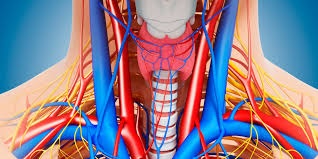Resources
About CCSVI
CCSVI is Chronic Cerebrospinal Venous Insufficiency. It occurs when people have obstructed blood flow in their veins that drain the central nervous system (the brain and spinal cord).
These veins can be narrowed, blocked, or even in rare cases missing (never fully developed). As a result of venous abnormalities, the blood flow rate through the central nervous system back toward the heart may become slowed and blood may reflux (reverse) back toward the brain and spine.
A CCSVI diagnosis may include one or more of the following abnormalities:
- An abnormal valve, septum, flap, or membrane that blocks or inhibits blood flow through the veins
- Reflux blood flow toward the brain or partial/no-flow detected through the veins returning blood flow toward the heart
- Stenosis is an abnormal narrowing of the veins that restricts blood flow. Types of stenosis include the collapse of the vein, twisting of the vein, ring-like narrowing in the vein, and other similar obstructions
- Internal jugular vein extrinsic compression causes restriction in blood flow
- Atresia, hypoplasia, or agenesis are severe venous problems, including veins that are partially closed, underdeveloped, minimally formed, or almost entirely missing
The consequence of reflux blood flow back into the brain is white plaque deposits. The white plaque deposits cause autoimmune inflammation, damaging the protective myelin nerve coating in the spinal cord and in the brain.
Cerebral venous insufficiency is associated with many neurological and autoimmune disorders:
- Autonomic Dysfunction
- Multiple Sclerosis (MS)
- Chronic Lyme Disease
- Chronic Fatigue Syndrome (CFS)
- Parkinson’s Disease
- Fibromyalgia
- Postural Orthostatic Tachycardia Syndrome (POTS)
- Amyotrophic Lateral Sclerosis (ALS)
Untangling CCSVI from Multiple Sclerosis: The Stories, The Science, and the Need for Action

